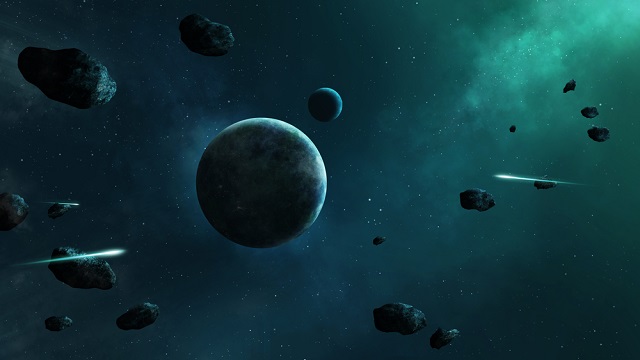Infinity is Not Real

This post originally appeared on the RealClearScience Newton blog. Read the original here.
Infinity is an invaluable abstract concept in mathematics, physics, and philosophy. Isaac Newton used the abstraction of infinitely small times and distances to formulate the calculus upon which all modern physics and much of mathematics relies. But, can we see infinity in the world around us? According to some, the answer is yes. I beg to differ.
The question centers on whether Infinity (∞) is a quantity, or amount. Amounts are sizes and distances and tallies — and they are represented by numbers. Numbers only have importance relative to other numbers. Infinity, however, ruins all number comparisons.
Mathematically, number amounts are compared by division and addition:
6/2=3 and 6+2=8
3/2=1.5 and 3+2=5
2/2=1 and 2+2=4
All numbers have relative value compared to any other number (in this case the number two). How about comparing infinity?
Compared to infinity, every other number is nothing. Infinity should not exist in the world we see because it would rewrite the rules for numbers: we would have infinity, and every other number would be nothing (0) by comparison.
Can we measure infinity in our universe? Does it exist in the same way that death and taxes and sunsets exist, and what are some possible real incarnations of infinity?
Think about this: The time from when dinosaurs walked the earth to now feels like an eternity to our imagination, but it pales compared to infinity. The amount of time from this very moment until the sun burns out over our extinct civilization, until all the stars in the universe slowly disintegrate, until nothing large enough to see by eye is left in the universe… is all the blink of an eye compared to the vastness of infinity.
Is the universe infinitely large? We have no evidence that it is. As far as you could ever travel in the universe, you will have always traveled a certain number of miles (and you could never reach the edge anyway). Your spaceship’s odometer would always show a finite number. No place is infinitely far from another place, just very, very, very far.
Does infinity exist in more common human endeavors?
In chess, losing your king means you lose the game. Does this make the king infinitely valuable relative to every other piece? No! If the king truly had infinite value, all positions featuring the living king would be equally good. (Remember, infinity plus any number is just infinity). The infinitely valuable king would make all of the pieces, in every possible position on the board, equal — i.e., equally worthless.
Considering the king to be worth twice, or ten times, or one-hundred times the value of other pieces may work well. But numbers like two, ten, 100, and 1000 are nowhere close to infinity.
Some people say death is infinite. It is not. Death is a finite length of time. As long as you may be dead, it will have been some number of years. Lucy, an early evolutionary ancestor of ours, has been dead for 3.2 million years. But this large number is nothing compared to infinity.
By trying to describe the universe as we observe it, physics does not allow us to experience infinity. String theory may talk about infinity. (Anyway, String Theory is irrelevant: right now string theory is as real as magic or paranormal hauntings.) In physics or engineering, infinity is the numerical answer that the machinery of theory spits out when something is impossible, irrelevant, or broken. An event that takes infinitely long to occur simply never happens. Something at an infinite distance is simply not there. Infinitely small means 0.
A more interesting question, perhaps, would be: “Is God infinite?” In this discussion, the abstraction of infinity might have real relevance. It would be useful and philosophically fascinating to consider.
In our material, measurable world, though, infinity is never a real, physical quantity; it is only an abstraction. A mathematician can tell you about an infinite set of numbers, but as much as he wishes, he can’t find you a cup of coffee with infinite joe. That “bottomless” cup of coffee eventually runs dry.





